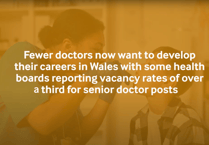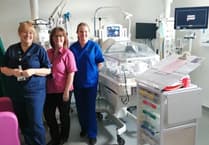Roll-out of free school meals and childcare must not compromise on quality if we are to safeguard the health of those most disadvantaged. This is the message from senior leaders in the Building a Healthier Wales Coordination group.
The group, established in 2019, aims to maximise the impact of the collective agencies that make up its membership, in order to improve health and well-being and reduce inequalities.
The Building a Healthier Wales Co-ordination Group is a non-statutory coalition of strategic leaders representing organisations and strategic perspectives from public, private and third sectors with a diversity of representation across Wales. Members include representatives from Local Government, Health Boards, Public Health Wales, Welsh Local Government Association, Natural Resources Wales, Welsh Government, Social Care Wales, Sport Wales, the police, the CBI, housing and voluntary sector.
The findings, produced at the request of the Minister for Health and Social Services, will be important for local authorities as they continue to implement Welsh Government policies. It is vital that the implementation of policies such as the extension of early year’s childcare and the provision of free school meals to all primary pupils does not widen, and ideally narrows, existing inequalities.
In their report, released today, they recommend actions to support implementation – such as:
- Ensuring that uptake of free school meals is high and provision is inclusive
- Providing opportunities to play and socialise within the setting
- Learning from other out-of-school food provision programmes
- Developing sustainable provision which supports local foundational economies over the long term
- Embedding fair working practices in school catering
Bringing together expertise from across Wales to shape the report, the group shared the findings with Welsh Government throughout its work. It is now making the report more widely available so local authorities and other partners can also use the evidence in their work.
Councillor Norma Mackie, Deputy Spokesperson for Health and Social Services of the Welsh Local Government Association and chair of the group, said: “Wales faces enormous challenges. With almost one in three children living in poverty, families are struggling to buy the essentials needed for a healthy life, such as fresh nutritious food. As programmes like free school meals expand, they must be delivered to a high quality if they are to help those families most in need.
“While many services are stretched, we know that now, more than ever, we need to focus on working together to prevent ill-health. By building a healthier Wales we can provide the best opportunity for sustainable services into the future.”
The group continues to work to enable best practice to be shared at a strategic level, identify common problems and solutions to current challenges, and carry out horizon scanning for future work. Among other projects led by the group were:
- A national cost of living summit, bringing together over 180 leaders and advocates across Wales, identifying opportunities for coordinated action
- A project which created 220 ‘Kickstart’ employment placements, and resulted in ongoing employment for 40 young people
- Overseeing the delivery of £7.2 million pounds allocated to health boards across Wales to carry out local action projects for preventing ill health
- Supporting implementation and evaluation of a pilot project to maximise income for young people, which saw over £400k in income gained with participants reporting improvements in mental well-being.
Jonathan Morgan, Chair of Cwm Taf Morgannwg Health Board and vice chair of the group, said: “It is encouraging to see that the first projects supported by the Building a Healthier Wales group have been successful.
“This work is about looking at the wider determinants of health and using an evidence-led approach to try to break down some of the longstanding health inequalities that exist in Wales.
“In order to build a healthier Wales, we need to look wider than just the health system. The economic factors of health inequalities are clear, and being able to deliver projects on the ground that can make some inroads into breaking down those inequalities is really important to the group.”
The report can be read here.




